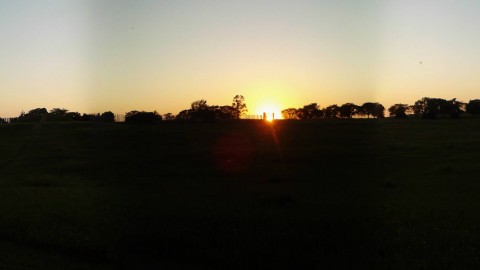Mind-Emptiness
Brain studies report some interesting findings. First, the experience is associated with a characteristic pattern of brain electrical activity – increased alpha-theta activity at the front and top of the brain along the midline. This is associated with reduced anxiety and improved attentional focus.
There was also a strong correlation between these objectively measured electrical changes and the subjective experience of the quality of the meditation experience.
Second, meditators exhibit reduced stress responses in the brain compared with non-meditators. This implies that the benefits are occurring at a neurophysiological level rather than being just a suppression of emotion or of its peripheral features.
Meditators, therefore, seem to be fundamentally modifying the way they generate negative emotions in response to the environment.
Reduced negative emotional reactions to stimuli should logically lead to reduced stress and an improved sense of well-being. But until studies where the brain changes are simultaneously measured alongside clinical changes, we can’t definitively state that these brain changes are the cause of the specific effects uncovered in our clinical studies.
Mind-emptiness
So how does this all fit together?
The mental silence paradigm is both complementary to and a progression of the mindfulness concept. While mindfulness involves the passive observation of stimuli with the aim of reducing mental reactions, mental silence involves progressing this experience to, and attaining, a state of no-mental-content-at-all, while remaining in full control of one’s faculties.
The original intention of mindfulness is as a method to facilitate the attainment of mental silence rather than being an end in itself.
This shift in our understanding resolves many of the paradoxes that were hitherto insoluble – while at the same time offering consumers and clinicians a practically useful way to understand and benefit from meditation.
Meditation is adventure, the greatest adventure the human mind can undertake. Meditation is just to be – no action, no thought, no emotion. You just are, and it is sheer delight.
The first step towards meditation begins with your body. So remember, whatever negative feelings you may have about your body that other people have imprinted on you, drop them. The body is just an instrument in the material as well as in the spiritual world.
Meditation is not against action. It simply teaches you a new way of life; you become the centre of the cyclone.
Meditation will bring you sensitivity, a great sense of belonging to the world. And this sensitivity will create new friendships for you – friendships with trees, with birds, with animals, with mountains, with rivers, with oceans, with stars. Life becomes richer as love grows, as friendliness grows.
Tags: Empty Mind Innate Wisdom Mental Noise Mental Silence Mind-Emptiness










